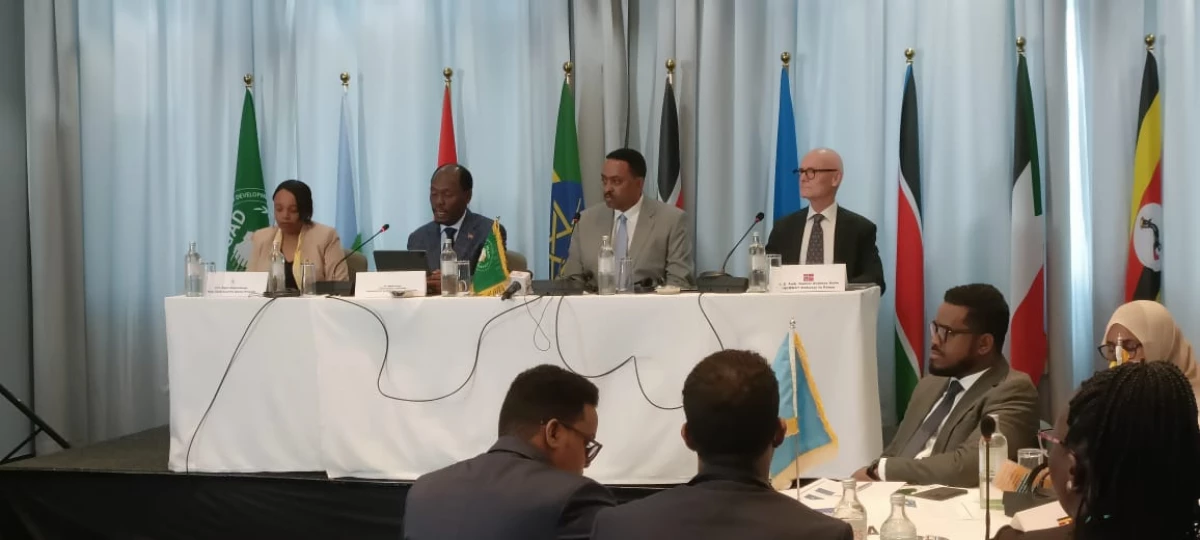IGAD calls for AI-driven cybersecurity strategy to combat rising threats in Horn of Africa


Audio By Vocalize
The Executive Secretary of the Intergovernmental Authority on Development (IGAD), Dr. Workneh Gebeyehu, has called for a coordinated regional effort to combat cybercrime through the adoption of artificial intelligence (AI) and enhanced cybersecurity measures.
He emphasised
that such collaboration is essential to ensuring security, sustainable
development, and digital resilience across the Greater Horn of Africa.
Speaking during
the Regional Consultative Seminar on Harnessing Artificial Intelligence and
Cybersecurity for Security, Cooperation, and Resilience, held in Nairobi, Dr.
Gebeyehu highlighted the transformative potential of technology when steered by
ethical leadership and human-centred values.
“Technology
best serves humanity when we, as humanity, guide its development,” he said.
The event
brought together dignitaries including Kenya’s Cabinet Secretary for ICT William
Kabogo, and the Norwegian Ambassador to Kenya Gunnar Andreas Holm,
among others. The seminar focused on how the region can jointly strengthen its
defenses against rising cyber threats.
Dr. Gebeyehu
underscored the role of AI in enhancing regional law enforcement, combating
transnational crime, and improving border management.
He cited promising initiatives such as: Kenya’s 40%
reduction in police response time through AI-powered surveillance; Ethiopia’s
deployment of predictive policing algorithms and Rwanda’s use of AI
in community policing.
Despite these
successes, Dr. Gebeyehu raised serious concerns about the growing cyber threat
in the region.
“Cyberattacks
now account for 68% of successful breaches across Africa. Kenya alone lost over
$83 million to cybercrime in 2023,” he revealed, urging IGAD member states to
adopt coordinated, data-driven cybersecurity strategies.
The Executive
Secretary also stressed the socioeconomic potential of decisive action in the
digital space, predicting that AI could contribute up to $180 billion to the
region’s GDP and generate 2.5 million jobs by 2035—particularly in
cybersecurity.
“The future
will not be defined by race or culture, but by those who can use AI and those
who cannot. That is the new literacy,” he said, describing AI as the new global
divide.
Dr. Gebeyehu
urged IGAD countries to dismantle data silos, build secure digital
infrastructure, and lead with cooperation and responsible innovation. He also
proposed that each IGAD member state allocate at least 2% of its annual budget
to establish a fund that supports security personnel in fighting cybercrime.
Kenya’s
Cabinet Secretary for ICT William Kabogo, acknowledged the progress made
but cautioned against complacency.
“We must
remain alert and proactive in combating cybercrime, rather than reacting after
attacks have occurred,” he stated. “This will provide security and a long-term
strategy to safeguard the Horn of Africa.”


Leave a Comment